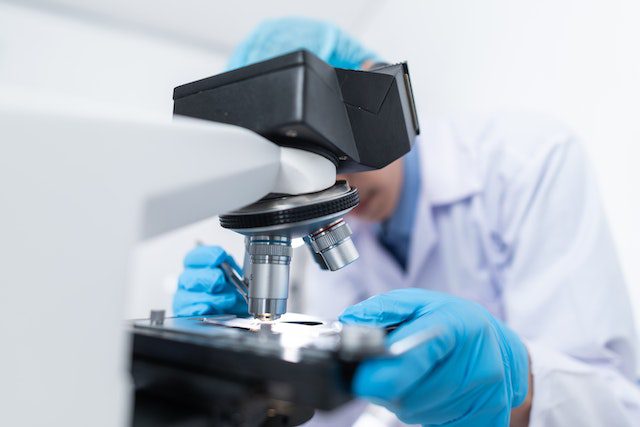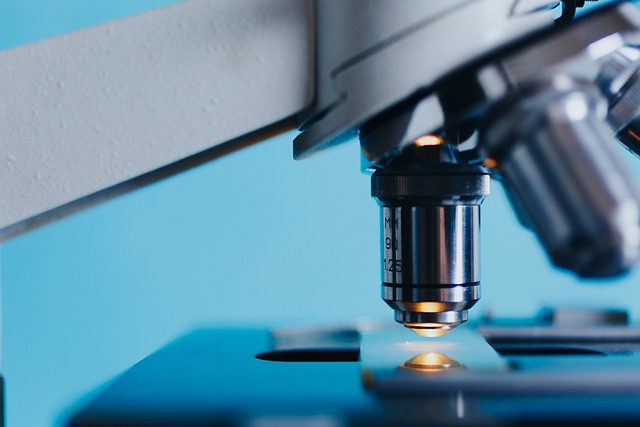Scholarship details
This project (20FUN02 POLight) was supported by the EMPIR program, which was co-funded by the Participating States, as well as the European Union’s Horizon 2020 research and innovation initiative. Swansea University’s Faculty of Science and Engineering, with support from the European Commission. Analytical chemistry, optical spectroscopy, imaging, and artificial intelligence are some of the topics covered.
A three-year PhD studentship is available to work on improved label-free super-resolution optical imaging for applications in materials and biology. In this project, you will use atomic force microscopy, Raman spectroscopy, and machine learning to develop new microscopy and imaging techniques for chemical and biological investigation with spatial resolution ranging from 10 nm to a few microns. The project will build on Swansea University’s successful engagement with European national measurement institutes.
About the Scholarship:
Swansea University has been making a difference since 1920 as a research-led university. It is a world-class institution of higher learning with a reputation for academic excellence, ranking among the top 30 universities in the United Kingdom (The Times and The Sunday Times Good University Guide 2019) and among the top 251-300 universities worldwide (Times Higher Education Rankings 2020). The institution was named Welsh University of the Year 2019 and 2020, as well as receiving a Gold medal from the national Teaching Excellence Framework (TEF) for its exceptional teaching and learning results. It is one of the top ten universities in the United Kingdom for graduate employability (Destination of Leavers from Higher Education 2018). The institution is located in Swansea, Wales’ second largest city, which is noted for its strong cultural scene. Swansea University’s beautiful waterfront campuses make it a popular choice for international students. Swansea University’s two campuses have acquired the prestigious Green Flag Status Award, making them the first and only Welsh dual-campus university to do so. Swansea University, one of the most research-intensive universities in the country, has seen a 70 percent increase in research income over the last ten years. The institution has eight colleges spread between its Singleton Park and Bay campuses:College of Engineering, College of Arts and Humanities, College of Human and Health Sciences, Hillary Rodham Clinton School of Law, School of Management, Swansea University Medical School, College of Science, Swansea University College of Science. The Association of Chartered Certified Accountants (ACCA), the Chartered Institute of Management Accountants (CIMA), the Chartered Financial Analyst Institute (CFA), the British Computer Society (BCS), the British Psychological Society (BPS), the Royal Aeronautical Society, the Institution of Mechanical Engineers, the Nursing and Midwifery Council (NMC), the Bar Council of India, the Solicitors Regulation Authority, the Nursing and Midwifery Council (NMC), the Nursing and Midwifery Council (NMC), the
The university has produced a list of illustrious alumni who are trailblazers in their fields. Annabelle Apsion (Film Actress), Geoffrey Thomas (President of Kellogg College, Oxford), Jonathan Hill (Presenter of Wales Tonight on ITV Wales), Jason Mohammad (Television/Radio Presenter at BBC Wales), Chris White (English International Rugby Referee), Graham Ryder (Geologist, Lunar Scientist, and Recipient of the Barringer Medal in the year 2003), and Physicist Evan James Williams are among the notable alumni of Swansea University. Residential Services houses about 4,500 students, and all first-year undergraduate and postgraduate students who apply before June 31st are assured University housing. With almost 1,000 rooms, the largest facility is 4 kilometers from the main Singleton Campus. All students are housed in a combination of en suite and ordinary rooms in most regions.
Student Accomodation Swansea is operated by the university and organizes shared housing for students in the city as well as assisting students in obtaining private rental accommodation. Swansea is the second-largest city in Wales, located on the south coast about 70 kilometers west of Cardiff. The university campuses are within walking distance of the city center and the seashore. While the town is most known for its watersports and coastline scenery, the city also has a thriving nightlife and cultural scene that is particularly popular among UK students. Traditional strengths are in science disciplines, but humanities subjects, which are worldwide recognized, offer a major support. Swansea is one of the top 15 universities in the country for graduate employment, with a 97 percent employment rate.
According to its students, Swansea University boasts one of the greatest student experiences in the UK, continuously ranking in the top ten in the National Student Survey. In comparison to other major UK cities, Swansea has a cheap cost of living. The city is alive, dynamic, and hospitable, and it is frequently referred to as a “home away from home.”
Scholarship Sponsor(s): Swansea University
Host Country(s): United Kingdom
Scholarship Worth: £15,609.
Study Level: PhD
Nationality: International Students
Scholarship Offer:
This scholarship covers the full cost of UK tuition costs as well as a £15,609 annual stipend.
Additional research funds will be available as well.
Eligibility for Scholarship
Candidates should have a 2.1 undergraduate degree in chemistry or a related topic, or a master’s degree in chemistry or a related subject with a minimum overall grade of ‘Merit’ (or Non-UK equivalent as defined by Swansea University).
Instrumentation, microscopy, optics, and computer programming are all desirable skills.
If applicable, IELTS 6.0 overall (with at least 5.5 in each individual component) or Swansea recognized equivalent is required. The English Language entrance policy at Swansea University can be found here.
Due to budgetary constraints, this award is only available to students from the United Kingdom and the European Union. Students from the European Union must be qualified for the EU Transitional Bursary Scheme.
Nationality
The Fully Funded Swansea University and European Commission PhD Scholarship is open to all international students
Application Procedure
Are you both interested and qualified? To apply, go to Swansea University’s website at www.swansea.ac.uk.
To apply, please fill out the following information on the online application:
- Please pick Chemistry / Ph.D. / Full-time / 3 Year / April as your course of study.
- Please select 2022 as the start year.
- Obtaining Funding (page 8) –
– Are you paying for your own studies?’ – please select No – Name of Individual or Organization Providing Funds for Study’ – please enter ‘RS64 – PhD Chemistry’
– Please note that submissions that do not include the following information may be rejected.
You must upload the following documents as part of your online application (please do not send them via email):
– Curriculum Vitae – Diplomas and transcripts (if you are currently studying for a degree, screenshots of your grades to date are sufficient)
– A cover letter with a ‘Supplementary Personal Statement’ explaining why the position is a good fit for your talents and expertise, as well as how you plan to proceed with the project.
– Two letters of recommendation (academic or prior job) on letterhead or on the Swansea University reference form. Please note that referrals citing private email addresses, such as Hotmail, will not be accepted. Referees should include their employer’s email address for reference verification.
– Proof that you have met the English Language requirement (if applicable).
– A copy of your resident visa in the United Kingdom (if applicable)
Application Deadline
The application deadline for Fully Funded Swansea University and European Commission PhD Scholarship is February 15, 2022





















